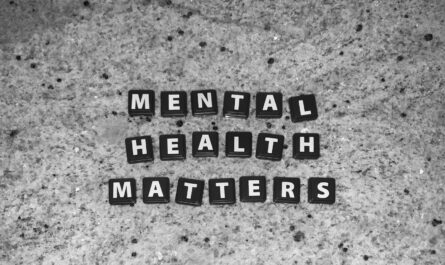In today’s digital era, the landscape of health information is more accessible than ever before. From social media influencers to online articles, we are bombarded with countless opinions and recommendations regarding nutrition, exercise, and overall wellness. Yet, this abundance of information can often lead to confusion, anxiety, and an unhealthy fixation on appearance. Diet culture—a pervasive set of beliefs that equates thinness with health and moral virtue—further complicates our ability to embrace wellness on our own terms. This article delves into effective strategies for navigating health information while avoiding the pitfalls of diet culture, ultimately guiding you to adopt a balanced and healthier perspective on wellness.
The Information Overload: A Double-Edged Sword
The internet offers an endless supply of health tips, diet plans, and wellness trends. While this access empowers us to learn about and improve our health, it also opens the door to misinformation and contradictory advice. The sheer volume of content can make it challenging to discern reliable sources from those promoting fad diets or pseudoscience.
Recognizing Credible Health Information
To sift through the overload, it is essential to identify trustworthy sources:
- Peer-Reviewed Research: Articles published in reputable scientific journals have undergone rigorous evaluation by experts. Look for references to studies or meta-analyses.
- Expert Endorsements: Seek information provided by credentialed professionals such as registered dietitians, certified nutritionists, and licensed healthcare providers.
- Institutional Trust: Websites of established organizations, such as the World Health Organization (WHO), the Centers for Disease Control and Prevention (CDC), or accredited universities, typically offer evidence-based information.
- Transparency: Reliable sources often provide citations and disclose any conflicts of interest, allowing you to verify the credibility of the information.
By developing a critical eye and verifying sources, you can build a foundation of accurate knowledge that empowers your wellness journey.
Understanding Diet Culture
Diet culture is a pervasive ideology that places an undue emphasis on body weight and appearance as the primary indicators of health and self-worth. It promotes the notion that achieving a particular size or weight will bring happiness and success. This mindset is perpetuated by media, celebrities, and even well-intentioned health advice, but it often leads to unhealthy behaviors and a distorted view of wellness.
The Hallmarks of Diet Culture
- Obsession with Weight Loss: Diet culture equates weight loss with health improvement, often ignoring other crucial aspects of well-being such as mental health, strength, and vitality.
- Moral Judgments: There is a tendency to label foods as “good” or “bad,” which can create feelings of guilt or failure when indulging in certain treats.
- Short-Term Fixes: Many diet trends promise rapid results with little regard for long-term health or sustainability. These quick fixes can lead to cycles of weight loss and regain, known as yo-yo dieting.
- Idealized Body Images: Constant exposure to images of thin or overly muscular bodies can contribute to negative body image and self-esteem issues, making it difficult to appreciate one’s natural shape and size.
Understanding these characteristics helps in recognizing when health advice veers into the realm of diet culture, allowing you to approach wellness with a more balanced and sustainable mindset.
The Impact of Diet Culture on Wellness
Embracing a lifestyle steeped in diet culture can have far-reaching consequences. The relentless focus on appearance and weight often overshadows the true essence of health, which is multifaceted and individualized.
Mental and Emotional Toll
- Body Image Issues: The constant barrage of idealized images can lead to body dissatisfaction, anxiety, and depression. When self-worth is tied to physical appearance, even minor changes in weight can be perceived as a personal failure.
- Disordered Eating: The pressure to adhere to strict dietary regimes can trigger disordered eating patterns, including restrictive diets, binge eating, or even more severe eating disorders.
- Stress and Anxiety: The fear of gaining weight or failing to meet societal standards can result in chronic stress, which in turn affects sleep, hormonal balance, and overall mental health.
Physical Health Implications
- Nutritional Deficiencies: Extreme dieting or elimination of entire food groups can result in nutritional deficiencies, undermining overall health and leading to conditions such as anemia, bone density loss, or impaired immune function.
- Metabolic Disruptions: Frequent cycles of weight loss and gain can disrupt metabolic processes, making it more difficult for the body to regulate hunger, energy, and hormonal balance over time.
- Decreased Physical Performance: Overemphasis on weight loss rather than overall strength and fitness can compromise muscle mass, energy levels, and endurance, ultimately hindering physical performance and vitality.
The negative impacts of diet culture extend well beyond the scale, emphasizing the need for a more holistic and compassionate approach to wellness.
Embracing a Healthier Perspective on Wellness
Shifting away from the constraints of diet culture means redefining what wellness means on a personal level. True wellness is about nurturing your physical, emotional, and mental health in a way that is sustainable and fulfilling.
Focus on Holistic Health
- Balanced Nutrition: Instead of categorizing foods as strictly “good” or “bad,” aim for a balanced diet that includes a variety of nutrients. Listen to your body’s hunger cues and enjoy food as fuel, nourishment, and pleasure.
- Mindful Movement: Engage in physical activities that bring you joy and improve your overall well-being rather than simply burning calories. Whether it’s dancing, hiking, or yoga, the key is to make movement a positive and stress-relieving part of your life.
- Mental and Emotional Well-Being: Incorporate practices such as mindfulness, meditation, and therapy into your routine. A healthy mind supports a healthy body, and nurturing mental well-being is essential to achieving overall wellness.
- Self-Compassion: Embrace a kind and forgiving attitude toward yourself. Recognize that wellness is a journey rather than a destination, and allow yourself room to grow and adapt without judgment.
Cultivating Body Positivity
Body positivity is a movement that encourages people to love and respect their bodies regardless of shape, size, or appearance. It is about rejecting the narrow definitions of beauty imposed by diet culture and celebrating the diversity of human forms. Here are some strategies to foster body positivity:
- Unfollow Toxic Influences: Evaluate your social media feeds and consider unfollowing accounts that promote unrealistic body standards or encourage unhealthy dieting practices. Instead, follow those that celebrate diverse body types and promote self-love.
- Practice Gratitude: Focus on what your body can do rather than how it looks. Whether it’s the ability to dance, laugh, or embrace loved ones, shifting your focus to the functionality and resilience of your body can enhance your appreciation for it.
- Surround Yourself with Positivity: Engage with communities, both online and offline, that support body acceptance and provide a safe space for discussing health and wellness without judgment.
Strategies for Navigating Health Information in a Digital Age
With an abundance of health advice at our fingertips, developing a discerning approach to evaluating information is crucial. Here are some practical strategies to help you navigate the digital health landscape:
Develop Critical Thinking Skills
- Question the Source: Always consider who is providing the information. Ask yourself whether the source is reputable, whether there is evidence to support the claims, and if the information is backed by experts in the field.
- Cross-Check Information: Don’t rely on a single source. Compare the advice with other reputable sources and see if there is a consensus among experts.
- Beware of Quick Fixes: If something sounds too good to be true, it probably is. Be skeptical of products or diets that promise rapid, miraculous results with little effort.
Prioritize Evidence-Based Information
- Focus on Science: Look for information that is based on scientific research rather than anecdotal evidence or personal testimonials. Peer-reviewed studies and systematic reviews provide a higher level of credibility.
- Consult Professionals: When in doubt, seek advice from healthcare professionals. Registered dietitians, doctors, and certified fitness experts can offer guidance tailored to your individual needs.
Use Technology Wisely
- Health Apps and Trackers: Utilize reputable apps and tools that help you monitor your health metrics, but use them as guides rather than strict rules. Remember that numbers and statistics are just one piece of the wellness puzzle.
- Educational Platforms: Many online platforms offer courses or webinars on nutrition, fitness, and mental health. Participating in these educational opportunities can empower you with knowledge to make informed decisions.
Practical Tips for Avoiding Diet Culture
Transitioning away from diet culture requires conscious effort and a commitment to reshaping your relationship with food, exercise, and body image. Here are some actionable tips to help you make the shift:
Redefine Your Relationship with Food
- Listen to Your Body: Trust your hunger and fullness cues. Avoid restrictive eating patterns that ignore your body’s natural signals.
- Celebrate All Foods: Adopt an inclusive approach to eating. Instead of labeling foods as off-limits, allow yourself to enjoy a variety of foods without guilt or judgment.
- Plan Mindfully: Create meal plans that are both nourishing and flexible. A balanced approach can help you enjoy your meals while ensuring you receive the nutrients you need.
Create a Supportive Environment
- Communicate Openly: Share your journey with trusted friends, family, or professionals who support your holistic approach to wellness. Open dialogue can provide encouragement and accountability.
- Seek Community: Engage with groups or communities that promote body positivity, balanced nutrition, and mindful movement. Being part of a supportive network can help reinforce your commitment to a healthier perspective.
- Limit Exposure to Negative Influences: Curate your social media and news consumption to include sources that empower you rather than induce stress or unrealistic comparisons.
Prioritize Self-Care and Mental Health
- Schedule Downtime: Integrate relaxation and mindfulness practices into your daily routine. Activities like meditation, journaling, or simply taking a walk can help alleviate stress and promote mental clarity.
- Set Realistic Goals: Instead of aiming for perfection, focus on progress and self-improvement. Set achievable goals that center on overall well-being rather than weight loss or appearance.
- Embrace Flexibility: Understand that wellness is not a one-size-fits-all journey. Allow yourself the freedom to experiment and adjust your practices as your needs evolve over time.
Shifting Towards a Sustainable Wellness Mindset
Moving away from diet culture involves a fundamental shift in how we perceive wellness. It’s about embracing a sustainable mindset that values long-term health, mental well-being, and personal satisfaction over quick fixes and external validation.
Focus on Sustainable Practices
- Balanced Routine: Develop a daily routine that incorporates balanced nutrition, regular physical activity, and mental health practices. Consistency over perfection is key.
- Long-Term Planning: Instead of drastic changes that are hard to maintain, aim for gradual improvements. Whether it’s incorporating more whole foods into your diet or slowly increasing your physical activity, small changes add up over time.
- Mindful Reflection: Regularly reflect on your wellness journey. Celebrate your progress, reassess your goals, and be open to evolving your practices as you learn more about what truly works for you.
Cultivate a Mindful Relationship with Your Body
- Self-Acceptance: Embrace your body for what it is and appreciate its capabilities. This self-acceptance is a powerful antidote to the negativity propagated by diet culture.
- Celebrate Diversity: Recognize that health and beauty come in many forms. By appreciating diverse bodies and rejecting one-dimensional standards, you foster a more inclusive view of wellness.
- Learn and Educate: Empower yourself with knowledge about nutrition, exercise, and mental health. In turn, share this information with others to help combat the spread of misinformation and promote a more balanced perspective on wellness.
Conclusion
Navigating the complex world of health information while resisting the pull of diet culture is a challenging yet transformative endeavor. By learning to identify credible sources, critically evaluate health advice, and prioritize a holistic view of wellness, you can free yourself from the constraints of harmful diet narratives. Embracing a balanced approach that values mental, physical, and emotional health over superficial metrics is the key to a sustainable and fulfilling wellness journey.
As you move forward, remember that your well-being is uniquely your own. Reject the one-size-fits-all standards of diet culture and instead focus on practices that empower you to live your best life. Whether it’s through mindful eating, embracing physical activities that bring joy, or cultivating a positive self-image, each step you take toward a healthier perspective contributes to a more vibrant and resilient life.
The journey toward wellness is not about perfection—it’s about progress, self-compassion, and continuous learning. By equipping yourself with accurate health information and fostering an environment that supports balanced living, you can overcome the pressures of diet culture and create a sustainable foundation for lifelong well-being. Embrace the journey with patience and curiosity, knowing that every positive change you make brings you closer to a more authentic and empowered version of yourself.



